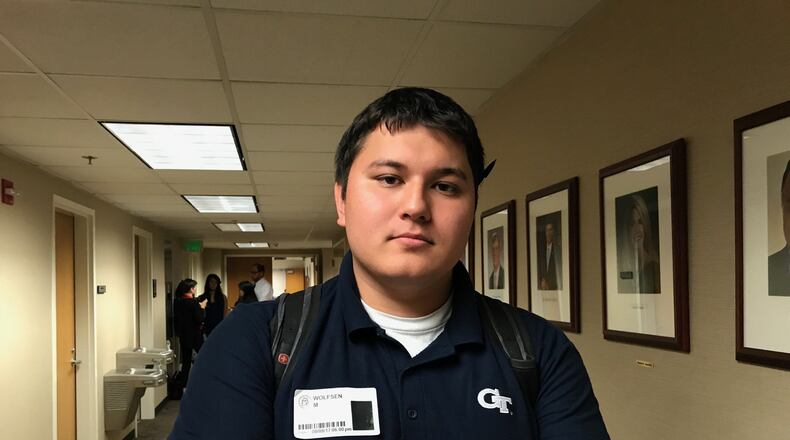Georgia public college administrators now have greater control over how campus complaints of sexual misconduct are handled, after the state’s Board of Regents adopted changes Tuesday to how it investigates such cases.
Changes include University System of Georgia administrators being notified when a complaint is filed that could lead to the suspension or expulsion of a student and the system having its own investigators to assist campuses as needed. Campus officials in charge of overseeing federal discrimination policies, known as Title IX, are now required to report directly to the university system.
The new policy also includes specific language outlining the penalties — suspension or expulsion — for students who file false reports.
The revisions were part of an effort USG officials hope will help them better investigate and reduce sexual misconduct complaints. But victim-rights advocates say additional improvements are necessary and worry the new policy may not comply with federal law.
“We’ll put that to the test,” said Matt Wolfsen, chairman of Georgia Tech’s student government association’s sexual violence advisory board, referring to plans to review the changes to see if they meet federal guidelines.
Accusers can file sexual misconduct complaints with campus staff and a campus tribunal will investigate. The accuser may file a complaint with campus law enforcement. USG officials told board members Tuesday there’s no specific timetable for how long it takes to complete an investigation.
“We want to get the investigation right as opposed to rushing through it,” Kimberly Ballard-Washington, the university system’s Title IX coordinator, told board members.
The board updated its policy in March 2016 after a task force discovered variations in how colleges handle such cases. USG officials held meetings with campus officials and student leaders in recent months to determine if additional changes were necessary. The Atlanta Journal-Constitution obtained a draft revision last month.
Sexual misconduct investigations have come under greater scrutiny in recent years due to changes in state and federal guidelines and concerns from victim-rights advocates that many complaints haven’t been thoroughly investigated. Others have worried about federal overreach in how investigations are conducted and that accused students aren’t being fairly treated during the process.
The changes take effect immediately. USG officials believe they can be implemented smoothly but some, like Lisa Anderson, executive director of Atlanta Women for Equality, are skeptical considering the fall semester begins later this month.
“We’ll see,” said Anderson.
USG officials hope the changes will give campus Title IX officials more time to conduct sessions for students explaining the rules and what’s improper conduct.
Helen Robinson, director of advocacy of the YWCA of Greater Atlanta, largely supports the changes, saying they should create greater consistency in how campuses investigate alleged misconduct. Robinson, though, is concerned the additional oversight may slow the investigation process.
“We don’t want to see any delays,” she said.
In other Education news:
About the Author
Keep Reading
The Latest
Featured


